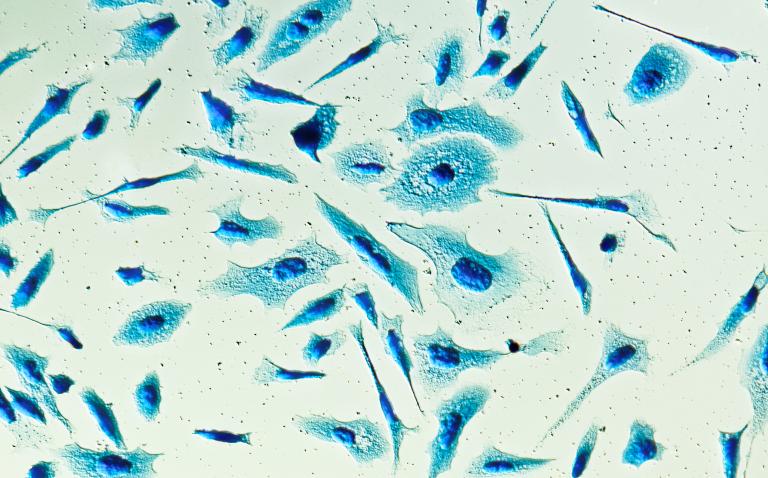Janssen has announced that the European Commission (EC) has licensed Erleada (apalutamide), for the treatment of men with non-metastatic castration-resistant prostate cancer (nmCRPC) who are at high risk of developing metastatic disease.
Prostate cancer is the most common cancer in men in the UK,1 resulting in over 47,000 diagnoses each year, or 129 each day.2
The licence is based on the results of the phase III SPARTAN trial, which found that apalutamide in combination with androgen deprivation therapy (ADT) significantly decreased risk of death or distant metastasis by 72%, compared to ADT alone.3 It was also found to improve median metastasis-free survival (MFS) by over three years (40.5 months) compared to just over one year (16.2 months) in the placebo group.3
The most common Grade 3/4 treatment-emergent adverse events in the SPARTAN study were hypertension (14.3 % vs. 11.8%), rash (5.2% vs. 0.3%), fall (1.7% vs. 0.8%) and fracture (2.7% vs. 0.8%).3 Treatment discontinuation due to adverse events was 10.6 percent in the apalutamide arm compared to 7 percent in the placebo arm.3 Rates of serious adverse events were similar in the apalutamide in combination with ADT arm versus placebo in combination with ADT arm (24.8% vs. 23.1% respectively).3
Prostate cancer is the most common cancer diagnosed in males in England,4 and approximately 84% (34,010 people) of those diagnosed suffer from the non-metastatic form of the disease, meaning that the cancer has not spread to other parts of the body (for example, the bones).5 If the disease is castration-resistant, it no longer responds to medical or surgical treatments that lower testosterone.6 90% of patients with nmCRPC will eventually develop bone metastases,7 which is a turning point in prostate cancer, as it is a key cause of complications and death.3 Extending the period without metastases is therefore an important treatment goal.3,7,8
Commenting on the EC licence, Dr Simon Chowdhury, Consultant Medical Oncologist, Guy’s and St Thomas’ Hospitals, said: “Apalutamide is one of the first treatments shown to be effective in this group of patients, as phase III clinical data demonstrated that it significantly prolonged the time that patients with non-metastatic castration-resistant prostate cancer survived without their cancer becoming metastatic.”
“We are pleased that the EC has authorised apalutamide for the treatment of patients with high-risk non-metastatic castration-resistant prostate cancer.” said Mohamed Lockhat, Therapeutic Area Medical Affairs Director for Oncology at Janssen UK. “At Janssen, we remain committed to our goal of developing and delivering innovative medicines that transform patients’ lives, and today’s approval brings us one step closer to achieving this.”
References
- Cancer Research UK. Prostate cancer incidence. Available at: https://www.cancerresearchuk.org/health-professional/cancer-statistics/s…. Last accessed January 2019.
- PCUK. About Prostate Cancer. Available at: https://prostatecanceruk.org/prostate-information/about-prostate-cancer. Last accessed January 2019.
- Smith, R. M. et al. Apalutamide treatment and metastasis-free survival in prostate cancer. N Engl J Med 2018; 378:1408-1418. Available at: https://www.nejm.org/doi/full/10.1056/NEJMoa1715546?query=featured_home. Last accessed January 2019.
- Office for National Statistics (2018) Cancer registration statistics, England, 2016. Available at: https://www.ons.gov.uk/peoplepopulationandcommunity/healthandsocialcare/… Last accessed January 2019.
- National Prostate Cancer Audit. Annual Report 2017. Available at: https://www.npca.org.uk/content/uploads/2018/02/NPCA-2017-Annual-Report_…. Last accessed January 2019.
- Saad. F. Guidelines for the management of castrate-resistant prostate cancer. Available at: https://www.ncbi.nlm.nih.gov/pmc/articles/PMC2997826/ Last accessed January 2019.
- Hotte SJ, Saad F. Current management of castrate-resistant prostate cancer. Curr Oncol. 2010; 17(Suppl 2): S72–S79. Available at: https://www.ncbi.nlm.nih.gov/pmc/articles/PMC2935714/. Last accessed January 2019.
- Coleman RE. Clinical Features of Metastatic Bone Disease and Risk of Skeletal Morbidity. Clin Cancer Res. Available at: http://clincancerres.aacrjournals.org/content/12/20/6243s.long. Last accessed December 2018.










